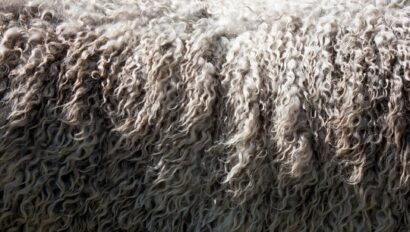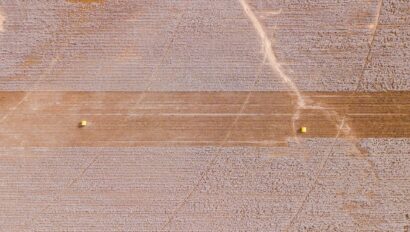Textile Exchange report highlights concerns with recent increase in adoption of genetically modified (GM) cotton in Africa
Demand for organic and preferred cotton is growing; ensuring support for non-GM sustainable alternatives will give farmers a choice and protect their ability to have market access.
Lubbock, Texas | June 9, 2020 at 9 am CEST, 3 am EDT – According to a new Textile Exchange Pan-Africa Sourcing Working Group white paper, “Cotton in Africa: Sustainability at a Crossroads,“ an increasing number of countries in Africa are choosing to adopt genetically modified (GM) cotton, defined as cotton that has had its genetic material (DNA) altered in a manner that does not occur naturally. However, Africa appears to be of two minds: while seven out of its 54 countries permit GM cotton production, four have opted out. Many other countriesare in the consideration phase.
Noting the global sustainable textile cotton industry‘s increasing demand for organic and GM-free preferred cotton, and given concerns about the environmental and economic ramifications of GM cotton, the Working Group urges policymakers in Africa to support preferred cotton production standards which prohibit genetic modification such as organic, Fairtrade, and Cotton made in Africa (CmiA). The white paper outlines the risks of scaling GM cotton in Africa and the opportunities of organic and GM-free preferred cotton standards.
The use of GM cotton was slow to start on the continent, with South Africa being the first country to permit its use in 1997, followed by Burkina Faso 11 years later in 2008 (Burkina Faso has since suspended its approval) and Eswatini and Sudan in 2012. However, in 2018 alone, another four countries – Nigeria, Ethiopia, Kenya, and Malawi – approved the use of GM cotton and Eswatini started growing the crop. In 2020, Kenya planted GM cotton for the first time commercially. In Africa, Algeria, Burkina Faso, Egypt, and Madagascar prohibited or have opted out of genetic modification in general, or GM cotton specifically.
“With relatively little penetration of GM cotton, African countries have an opportunity to learn from other countries’ experiences of GM technology and weigh the pros and cons,” says Liesl Truscott, Textile Exchange Director of European and Materials Strategy and Coordinator of the Working Group. “Demand for organic and other non-GM cotton continues to increase and, keeping in mind the genetic biodiversity and resilience that local seed varieties can offer, we hope this report creates food for thought for decision-makers at all levels. In the journey toward regenerative organic fiber production, it is vital for countries to allow for GM-free cotton initiatives based on organic practices and the precautionary principle to flourish.”
Prama Bhardwaj, CEO and Founder of Mantis World and Chair of the Pan-Africa Sourcing Working Group, urges African cotton producers to “choose to grow organic cotton which can be integrated into the growing African sustainable textile supply chain or used by manufacturers in Europe and the Middle East,“ all of which are striving to meet United Nations Sustainable Development Goals addressing responsible production as well as industry commitments.
According to Textile Exchange‘s 2019 Organic Cotton Market Report, global production of organic cotton saw impressive growth between 2016/17 and 2017/18, increasing 56 percent to 180,971 metric tons (831,193 bales). Africa accounted for approximately four percent of global organic cotton production in 2017/18, experiencing a 20 percent increase over 2016/17.Approximately 37,000 farmers in eight countries grow organic cotton; Tanzania is by far the largest organic cotton producing country on the continent, followed (in order of volume) byUganda, Benin, Burkina Faso, Mali, Egypt, Ethiopia, and Senegal.
Several Working Group brands source organic cotton from Africa, including Cotonea, Mantis World, and Mayamiko.
“Africa is at a crossroads,“ says La Rhea Pepper, Textile Exchange Managing Director. “It is key for governments, farmers, and other stakeholders to recognize the importance of protecting the right of farmers to grow non-GM crops. Organic agriculture is a proven system for sequestering carbon, building soil health and biodiversity, and increasing food security. Introducing GM agriculture requires the implementation of stringent biosafety regulations as well as investment in non-GM seed and training to ensure coexistence with organic agriculture.“
Textile Exchange‘s Pan-Africa Cotton Sourcing Working Group will continue to track policy addressing genetic modification in Africa and advocate for organic and non-GM preferred cotton production standards. Textile Exchange views regenerative organic cotton production systems operating under fairtrade principles as the gold standard.
Quotes from Working Group members:
bioRe® Foundation: “This white paper is extremely important to promote organic cotton production in African countries. Over the last 25 years, as bioRe Foundation has been working in both Tanzania and India, we have observed the devastating negative impacts of GM-cotton production in countries like India, where the coexistence of organic cotton and GM-cotton is extremely difficult to maintain. While seed is a single factor only, organic agriculture is a holistic approach for healthy soils, balanced pest control, and reliable market access, providing sustainable livelihoods for smallholder farmers.“ – Christa Suter, CEO.
Cotonea/Elmer + Zweifel: “As a manufacturer of GOTS-certified organic fabrics,Cotonea/Elmer + Zweifel has supported organic cotton production by the Gulu Agricultural Development Company (GADC) in Uganda since 2009. In this poor region wracked by years of civil war, Cotonea/Elmer + Zweifel has helped expand organic production for 12,500 farmers over the years by providing a reliable, transparent, and high-quality value chain linking the farmers with our manufacturing facilities in Germany, Czech Republic, and Switzerland and brands throughout Europe.“ – Roland Stelzer, Managing Partner.
FiBL, Research Institute of Organic Agriculture: “GM cotton is hardly compatible withagroecologic production and, if done in coexistence with organic cotton, reduces income chances for small-scale farmers due to contamination problems. This white paper sharpens the eyes of the critical readers and explains why preferred cotton, including organic, is the better choice.“ – Gian Nicolay, Africa Coordinator and Policy and Sector Development Co-Lead.
Mantis World: “As a B2B supplier of organic apparel, we understand both the brand and supplier needs for the transparent, traceable, and non-GM organic cotton supply chain we have been privileged to have for years in Africa. This paper clearly sets out the opportunities and risks facing African agricultural policymakers as brands look to create more diversified sustainable supply chains post-Covid-19. Africa is at a crossroads when it comes to deciding whether or not to expand GM cotton use; we hope it will choose to turn in the direction of preferred cotton.“ – Prama Bhardwaj, Owner.
Pesticide Action Network – UK: “PAN-UK and its partners have demonstrated that, with good quality training, organic cotton production can enable smallholder farmers to achieve at least as good financial returns as conventional cotton while also protecting their health and vital ecosystem services.“ – Dr. Sheila Willis, Head of International Programmes.
Soil Association: “Many African nations recognize the far-reaching benefits of supporting organic agriculture for the health of their citizens and the long-term viability of their agricultural sector. GM cotton is an expensive distraction at a time when we need to act fast to tackle the climate crisis and protect the livelihoods of those who are most vulnerable to its effects. This important white paper sets out the situation across the continent and makes a clear case for supporting organic and other non-GM cotton. Coupled with the soaring demand from consumers and brands in the West, now is the time to invest in and promote African organic cotton.“ –Sarah Compson, International Development Manager.
The members of the Textile Exchange Pan-Africa Cotton Sourcing Working Group that contributed to the white paper include Aid by Trade Foundation, Bradan Consulting, bioRe® Foundation, Cotonea/Elmer + Zweifel, ecos, Fairtrade Foundation, FiBL (Research Institute of Organic Agriculture), GIZ, Mantis World, Mayamiko, Organic Cotton Accelerator, Pesticide Action Network-UK, Soil Association, and Textile Exchange.
###
About Textile Exchange
Textile Exchange is a global nonprofit that creates leaders in the sustainable fiber and materials industry. The organization develops, manages, and promotes a suite of leading industry standards and collects and publishes vital industry data and insights that enable brands and retailers to measure, manage, and track their use of preferred fiber and materials.
With a membership that represents leading brands, retailers, and suppliers, Textile Exchange has for years been positively impacting climate through accelerating the use of preferred fibers across the global textile industry and is now making it an imperative goal through its 2030 Strategy: Climate+. Under the Climate+ strategic direction, Textile Exchange will be the driving force for urgent climate action with a goal of 35-45% reduced CO2 emissions from textile fiber and material production by 2030.
To learn more about Textile Exchange, visit TextileExchange.org. Follow us on Twitter at @TextileExchange.

